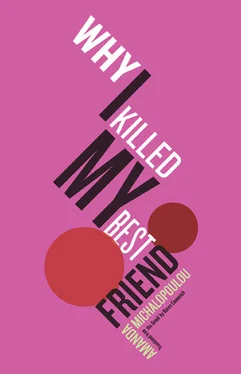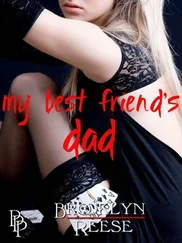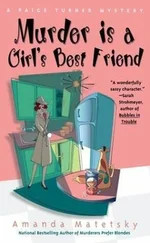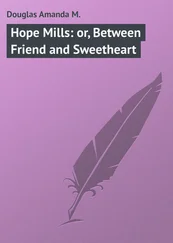Not at all. If there’s anything I know how to interpret, it’s children’s drawings. I’ve read a lot on the subject, but more importantly, I remember. I remember the kind of need that drives you to draw caves and rain. Sure, I may have talked to her about caves and witches who eat crickets, but she was the one who thought up the lightning that slices across the page like tiny swastikas. And she added those reddish-brown splotches of mud — as if the landscape had come down with the chicken pox.
Daphne draws the way her mother did, with sweeping gestures, practically tearing the page as she goes. She’s not afraid of the color gray. She made the witch enormous and the witchlet microscopically small, suggesting a certain balance of power. A strong female presence in the family — who else but Anna? And the cave, symbolizing protection. I imagine a house ruled by underground terror. Either there’s no father at all or he’s completely powerless, since there’s no sign of him in the drawing. No siblings, either. The mother witch and the little daughter witchlet. They climb onto their magic carpet and head off to help the poor. Another witch, flying by, reaches out a hand and shakes the carpet. The witch and the witchlet grab hold of the tassels just in the nick of time. Come here, my pretty. You thought you could escape me, but you can’t.
“What’s wrong, child? Did a bakery burn down?”
That’s how Mom scolds me for my long absences. It’s a common enough idiom, but the subtext to her irony is that I only come to see them when something’s gone wrong in my life. She’s a busy woman now, fairly well-known as a children’s writer, but she still plays the stereotypical Greek mother to perfection.
“I just missed you guys, that’s all.”
The house on Aegina, behind the fish market, was built in the ’70s. The yard is like a faint memory of Nigeria: a well instead of a goldfish pond, pistachio trees instead of banana trees. On the veranda — rain or shine — a wrought-iron table with a marble top, just like the one we had in Ikeja. I have no idea how they managed it, but as soon as I set foot in the house, I’m half expecting Gwendolyn to appear, and I’m surprised to see Dad sitting there in his armchair. He was always at work. Now he folds his newspaper and gives me a thorough once-over, from my face down to my shoes.
“Did you wipe your feet on the way in?”
“Yes, old man.” I kiss him on the top of his head, the way he used to kiss me once I’d reached the age when you’re too big to be carried, but still too little for an adult to bend down as far as your cheek. It’s as if he shrank. Of course he’s sitting down, and curtseying isn’t my thing.
The living room smells like incense and lentils. Mom is waving her censer in front of her icons and whispering something, as always, to the Holy Virgin and the saints.
“Mom made you lentils.”
“What, no biftekia?”
“Are you mocking me?” Mom says, not turning to look at me, the censer dangling in midair.
It takes me half an hour to calm them down. When the complaints and the cross-examination are finally over and they pull out the old family albums from Africa, I know the moment has come for me to kick off my shoes and curl up on the sofa. Mom keeps it covered so that the upholstery doesn’t get ruined, but I push the sofa cover away with my hand, just a tiny bit at the edge, then lean my cheek down and inhale the only bit of concentrated Africa I have left: Gwendolyn’s sweat, spills from Mrs. Steedworthy’s tea, the acrid metallic smell — drin! drin! — of my bicycle bell.
We pore over the photographs for the thousandth time. Mom in pointy heels with a striped kerchief on her head. “What a beautiful wife I had!” Dad brags.
“Compared to Mrs. Fatoba, you mean, or to poor Jane Steed-worthy?” Mom asks with a touch of coquetry in her voice.
“Could anyone compare with you, my dear?”
Mom bursts out laughing. “What about my little girl?” She points to a photograph in which I look absolutely pitiful — already Miss Inner Beauty even then. White shoes and hair in curls, a ridiculous Shirley Temple her parents dragged along to some tea party. Scabs on my knees beneath the white dress. My hair is nice, sure, but my smile shows a broken tooth.
“Dad, what a funny little colonist you were, with your socks up to your knees and your khaki shorts.”
“If you only knew how long I spent ironing that crease,” Mom says in a dreamy tone of voice. She’s bending over my shoulder to admire us as if we were actors from the ’60s, playing in her favorite soap opera.
“You? Not Gwendolyn?”
“Oh, please, Gwendolyn never ironed your father’s pants. That was my job!”
“Your mother was an incredible woman,” Dad says, as if referring to some prehistoric era.
Mom nods her head with a satisfaction tinged with sadness. These days she’s written seven children’s books and has a huge file of newspaper clippings and interviews — but she’s never been as happy as she was back then.
After lunch the small family dramas begin. The table is strewn with crumbs; uneaten lentils are drying on our plates; after his first glass of wine Dad blows up at the least little thing; a note of exasperation creeps into Mom’s voice. All signs point to the imminent eruption of the first argument of the afternoon. They bicker over the most ridiculous things: the telephone bill, who left the feta out on the counter, the motorbikes on Aegina.
“I’ll slash their tires — then they’ll think twice about making a racket during afternoon siesta!” Dad says.
“Enough already, you’re always saying that and you never do a thing!”
I can’t help but laugh as I picture my father sneaking around slashing tires, terrorist-style, Mom keeping watch to make sure no one is coming. They get mad at me for laughing and direct their irritation toward me instead. They insist that I go and lie down in the room they refer to as mine because they’ve put my old desk in there, and hung up an old poster of The Cure. A mausoleum for my childhood years. They’ve saved all kinds of appalling things: a box of dried-up pastels, the newspaper clipping of my Savings Day drawing, an old class picture with A Souvenir from Grade Three written on it.
I lie down on the bed, clutching the photograph. What else am I supposed to do on Aegina? Mom is busy writing her African stories or answering letters from kids, and Martha, two blocks down the road, is surely watching her afternoon soaps, so I might as well fix my eyes on something for a while, too: Anna, for instance, perched on a stool smack in the middle of the back row. You can’t see the stools, so the kids in that row look like angels hovering in mid-air. Or, better, devils: Petros is picking his nose. Angeliki, with her satanic laugh, has her face in profile so the smushed turd won’t show. I’ve been exiled to the very edge of the front row, in my cast and matching white tube socks, one pulled up to my knee, the other slouched around my ankle, the elastic apparently loose — what a mess. How young we were! What tiny fingers wrote that note to “ Dear Mrs. Anna’s Mother ”! What non-existent hips emerged from our corduroy bell-bottoms during our peeing contests!
But why did they put me in the front row, so far from my best friend?
Of course — Anna’s short! How could it never have occurred to me before? On the outside, at least, I’ve always been the stronger of the two.
“Surprise!” Anna is hovering in the doorway of my room, just as in our class picture. How does she do that? She’s dressed as a hippie and before I can take cover, she lobs a Molotov cocktail in my direction. The sheets catch fire, I’m engulfed in flames.
Mom throws a blanket over me, trying to put out the fire.
Читать дальше












